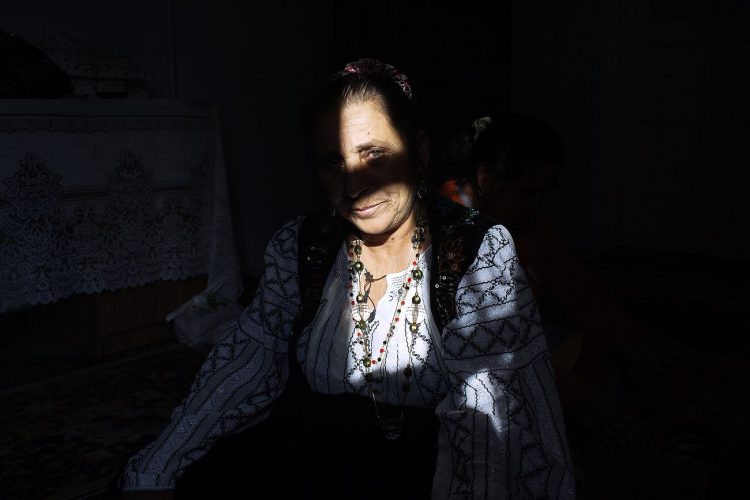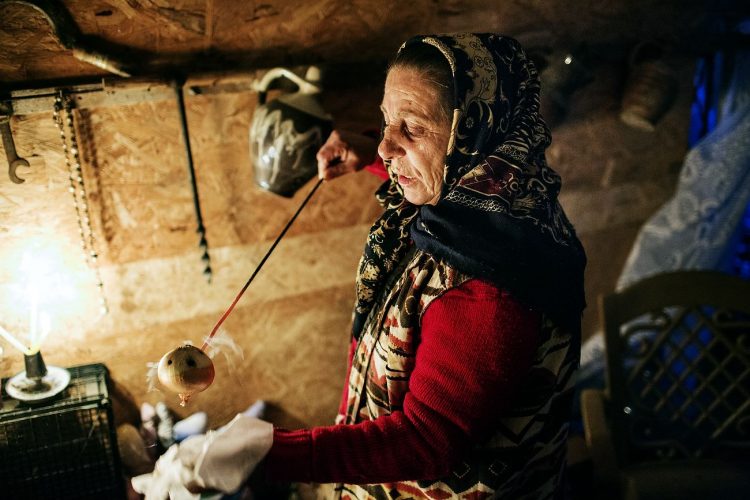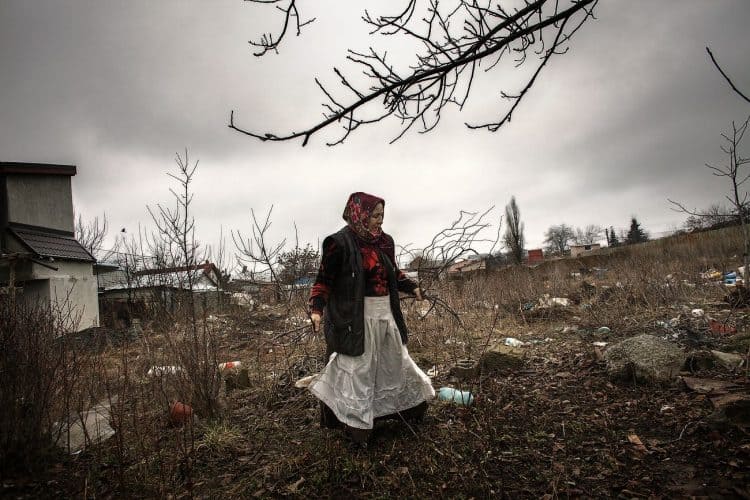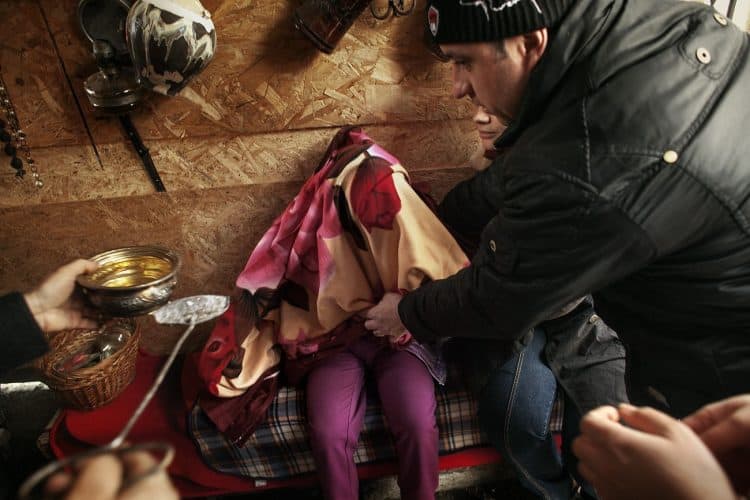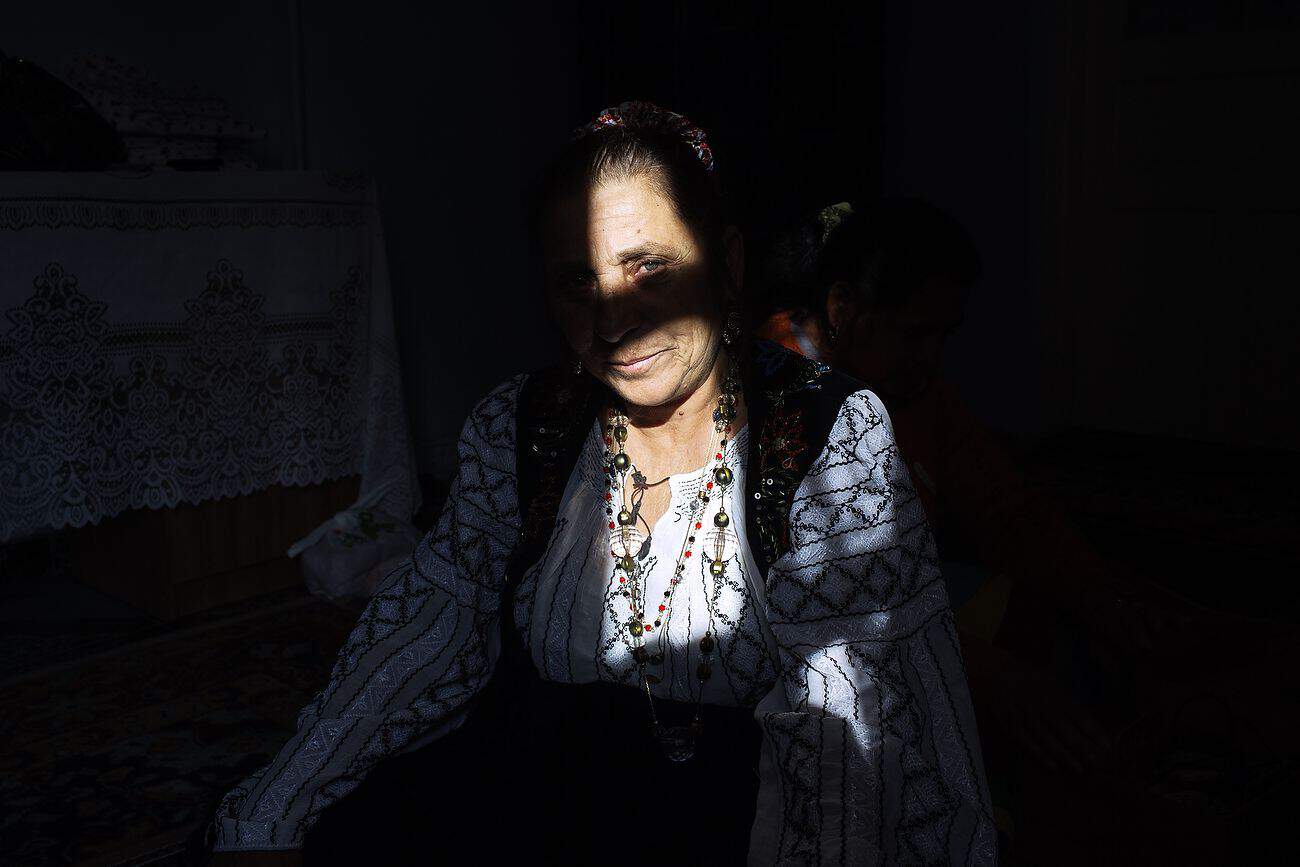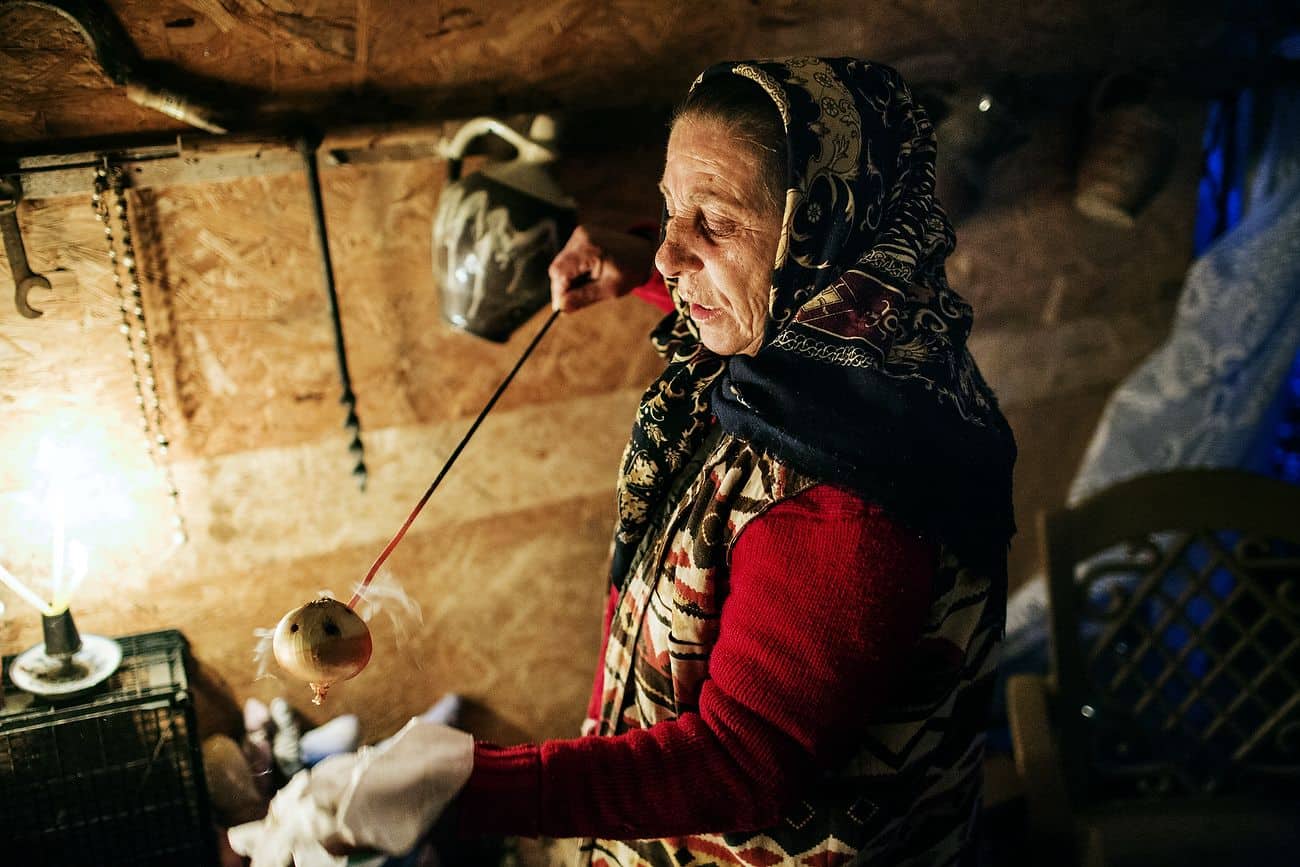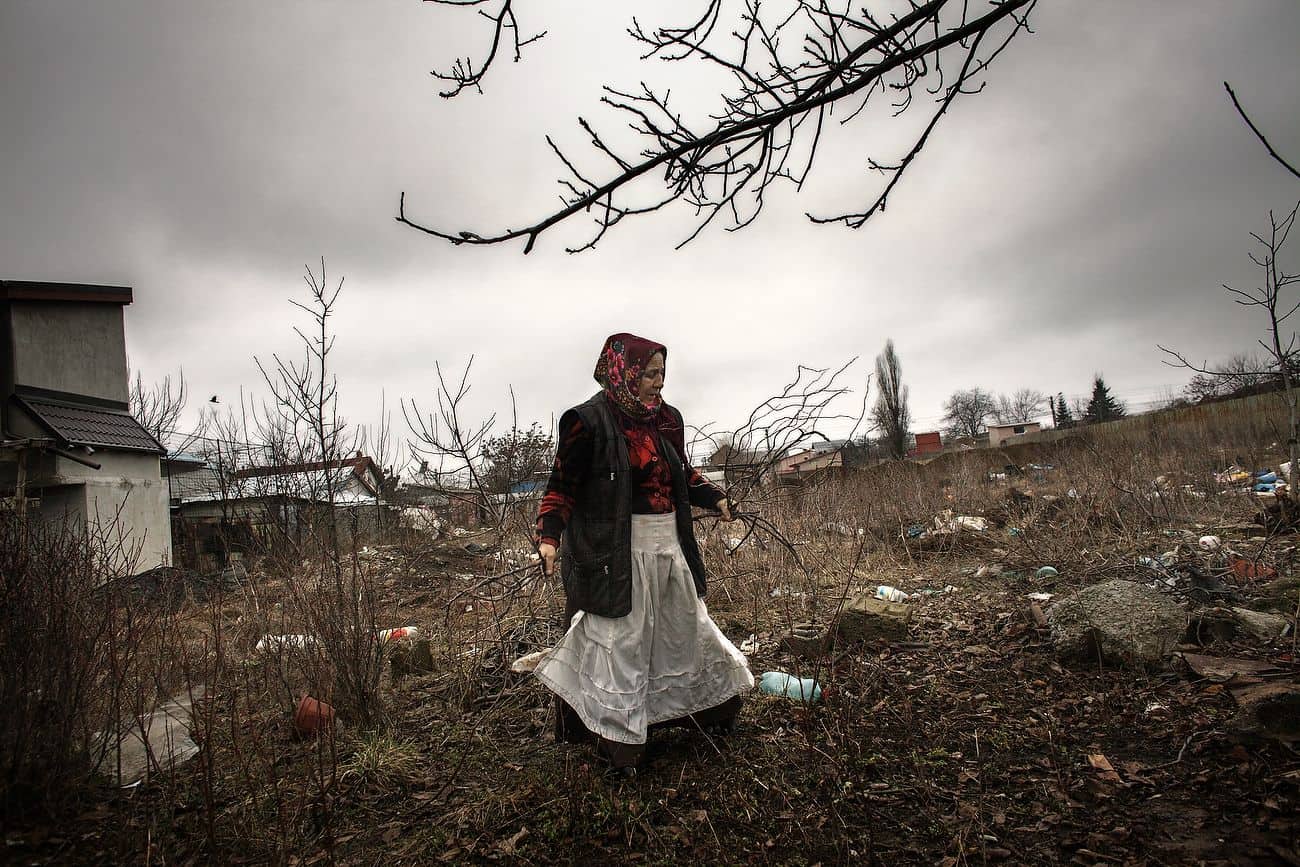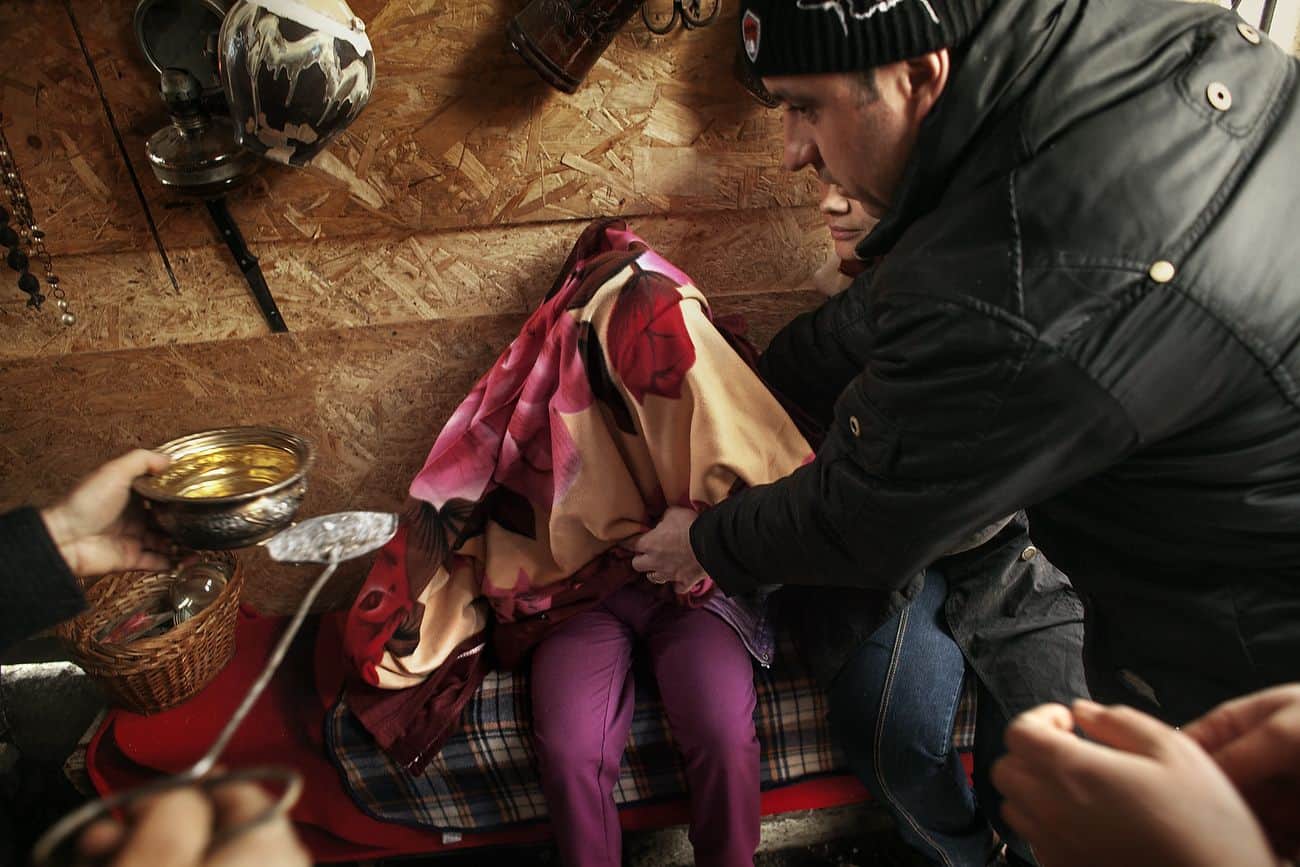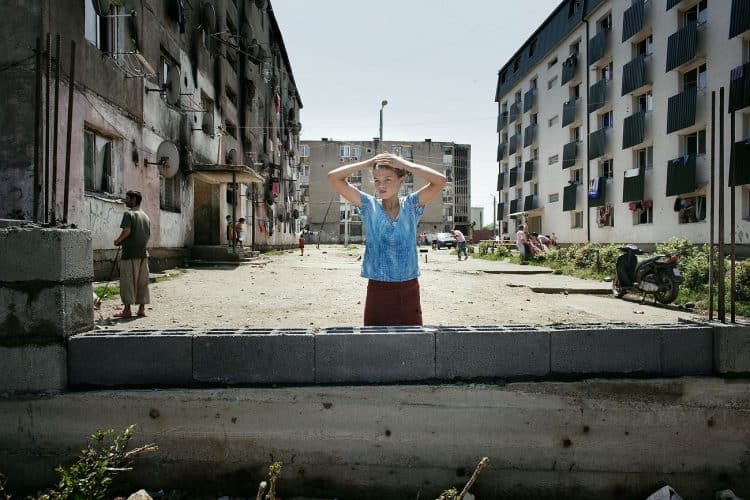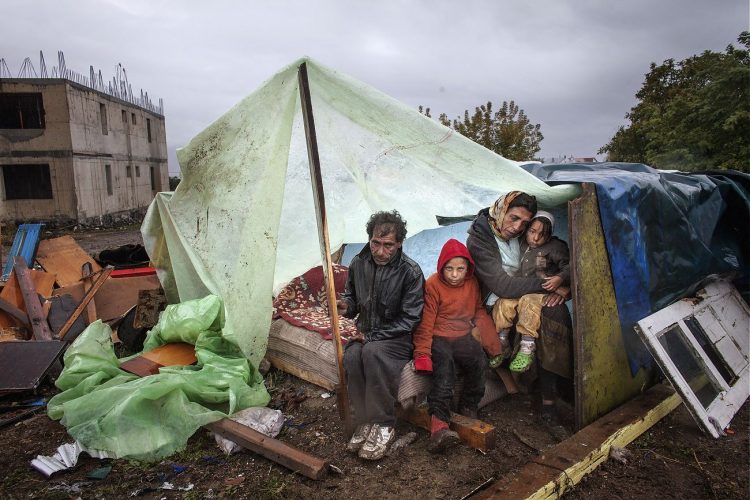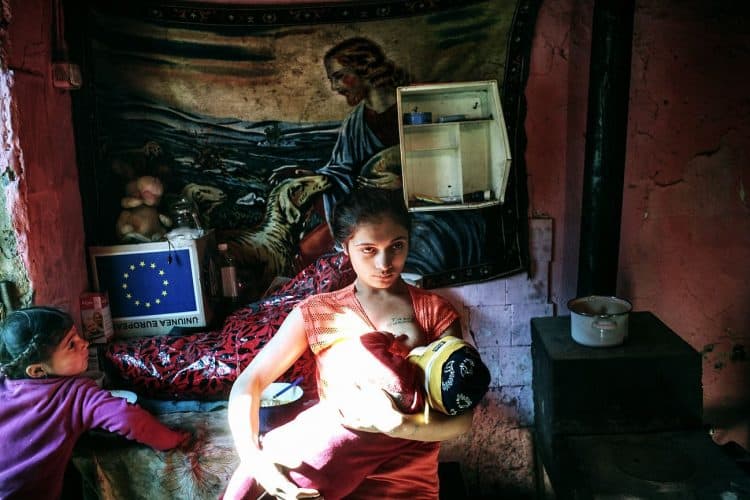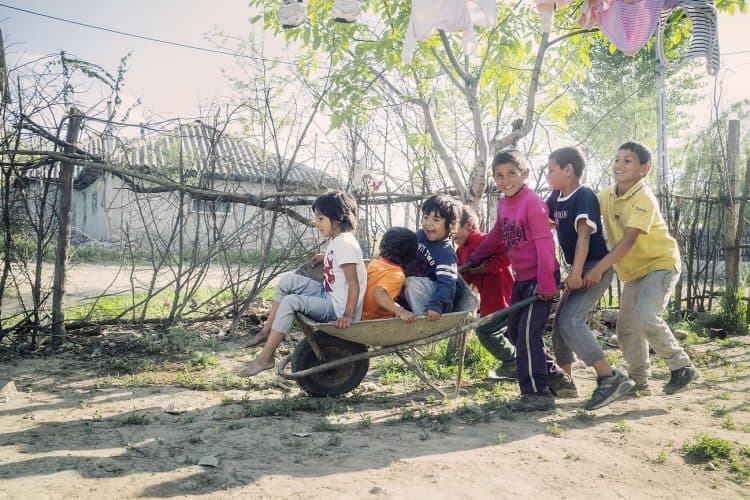While some of the witches jabbered in front of the cameras about things that would leave most of us speechless, bewitched even, I told the others, aside, that I could assist them communications-wise, but on one condition: that they keep their mouths shut.
As if by magic they fell silent and that is how I got to take part alongside the witches and Nicolae Paun in a televised debate on the draft law I mentioned before.
I won’t bore you with the details of the television debate, but I will tell you that this is how the idea of a documentary on witches came to me.
Last year I left the Festival of Photojournalism in Perpignan earlier than planned. I didn’t want to miss the Roma Festival at Costesti. I had taken part the previous year, but had got there rather late. Suddenly, a woman in the crowd drew my attention. She saw me taking a photograph of her and came up to me to introduce herself: “I am Bratara (bracelet) the witch.” I thought to myself at the time: “This must be a sign,” and I asked for her phone number so I could contact her when I got back to Bucharest.
Not long after that I started working on the project. I had no idea what a witch’s day-to-day life was like. At first, I was worried that all I would get to see would be her reading the tarot cards a couple of times. Little did I know what an interesting and strong woman she would turn out to be. From her childhood in a covered wagon to the respect in which she is held by her very large family, Bratara’s life is like a novel. After a life marked by good times and bad times, today Bratara enjoys a level of respect many non-Roma never dream of.
